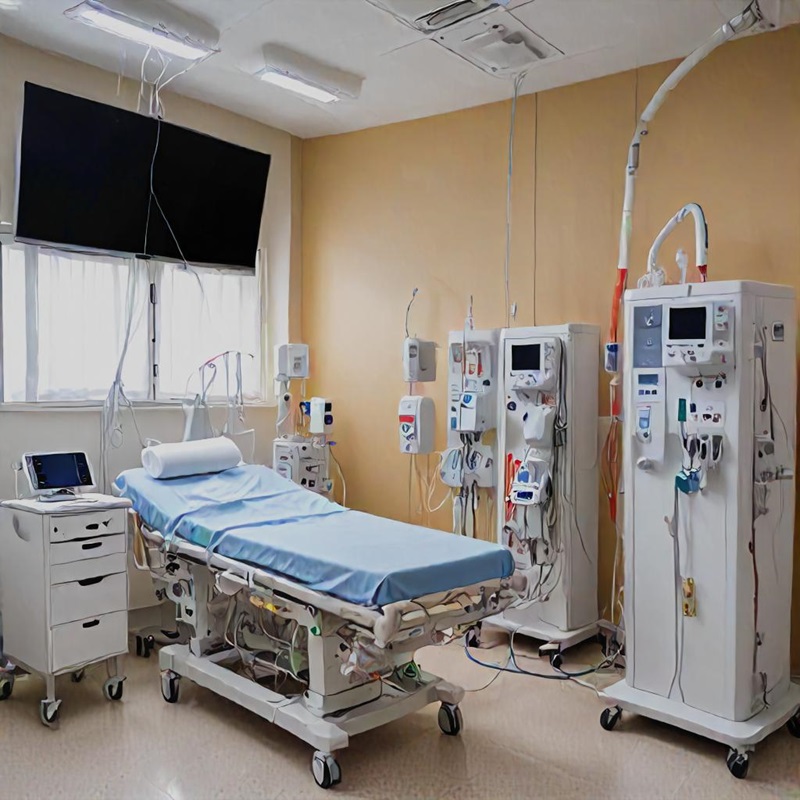
Everything You Need to Know About Dialysis
Precautions and Choosing the Right Hospital for Treatment
What is Dialysis and When is it Required?
Dialysis is a medical treatment used to replace the function of the kidneys when they no longer work effectively. It is commonly recommended when a patient’s kidney function reaches Stage 5 Chronic Kidney Disease (CKD), also known as end-stage renal disease (ESRD), or when there’s an acute kidney failure situation.
There are two main types of dialysis:
- Hemodialysis – Involves a machine that filters blood outside the body.
- Peritoneal Dialysis – Uses the lining of your abdomen (peritoneum) to filter the blood inside your body.
Precautions Before Starting Dialysis
Before undergoing dialysis, patients must take several important precautions to ensure the procedure is safe and effective:
1. Consult with a Nephrologist
It’s crucial to have a thorough consultation with a nephrologist (kidney specialist) before starting dialysis. The nephrologist will:
- Assess your kidney function through tests like glomerular filtration rate (GFR) and creatinine levels.
- Discuss the appropriate type of dialysis based on your condition, lifestyle, and overall health.
- Advise you on managing any other medical conditions that could affect dialysis, such as hypertension, diabetes, or heart disease.
2. Get the Right Access Site for Hemodialysis
For hemodialysis, an access site needs to be created in your body, usually in the form of:
- Fistula: A surgically created connection between an artery and a vein, typically in the arm, that is the most durable and preferred access for hemodialysis.
- Graft: A synthetic tube used to connect an artery and vein if veins are too small for a fistula.
- Central Venous Catheter (CVC): A tube inserted into a large vein in the neck or chest, often used temporarily.
Preparing the access site early enough is essential to avoid delays in dialysis treatment.
3. Understand Your Diet and Fluid Restrictions
Dialysis patients are often advised to follow a specific diet that includes limiting:
- Sodium to reduce fluid retention
- Potassium and phosphorus to avoid dangerous buildup in the blood
- Fluid intake to prevent fluid overload, which can strain the heart and lungs
A renal dietitian can help you create a personalized eating plan that ensures you are getting the right nutrients while maintaining your kidney health.
4. Prepare for Dialysis Scheduling
Dialysis typically requires multiple sessions per week. Hemodialysis usually takes about 4 hours per session, 3 times a week. Peritoneal dialysis, on the other hand, can be done at home daily, with shorter sessions. Ensure you have a flexible routine that allows you to attend treatments regularly, as consistency is key for effective dialysis.
5. Be Aware of Potential Risks and Side Effects
Dialysis carries some risks, such as:
- Infections at the access site
- Low blood pressure during hemodialysis
- Muscle cramps
- Fatigue or dizziness Be sure to ask your doctor about any potential risks associated with your specific treatment plan.
Choosing the Right Hospital for Dialysis Treatment
Selecting the right hospital or dialysis center is critical to ensure you receive the best care and treatment. Here are some key factors to consider when choosing a hospital for dialysis:
1. Reputation and Expertise
- Research the hospital’s reputation: Look for hospitals or dialysis centers that are well-regarded for their expertise in treating kidney disease and offering dialysis services.
- Nephrology team: Make sure the hospital has a skilled team of nephrologists, dialysis nurses, and dietitians who specialize in kidney care.
- Accreditations and certifications: Check if the hospital has been accredited by recognized bodies like the National Kidney Foundation or other relevant health authorities.
2. Quality of Care
- Monitor the quality of dialysis: Hospitals should provide high-quality dialysis with regular monitoring of your condition. Ask about the hospital’s success rates, particularly for patients undergoing dialysis, and any protocols they have in place for managing complications.
- Infection control practices: Dialysis patients are at risk for infections, so it’s essential to choose a hospital that follows strict infection prevention and control measures.
3. Accessibility and Convenience
- Location: Dialysis requires regular visits, so it’s essential to find a hospital that’s easily accessible from your home or workplace.
- Transportation and parking: Ensure the hospital has convenient parking or offers transportation services, as dialysis appointments can be long and tiring.
- Flexible scheduling: Look for hospitals that offer flexible hours for dialysis appointments, especially if you need to work around your personal schedule.
4. Facilities and Comfort
- Comfortable environment: Dialysis can be a lengthy process, so choose a facility with a comfortable, clean, and relaxing environment. Some centers even provide Wi-Fi, TV, or recliners to help pass the time.
- Home dialysis support: If you prefer peritoneal dialysis at home, ensure the hospital has proper support services for home dialysis training and monitoring.
5. Support Services
- Emotional and psychological support: The journey through dialysis can be overwhelming, so check if the hospital offers support groups or counseling services to help you manage the emotional challenges of CKD.
- Nutrition counseling: Since diet is crucial for dialysis patients, ensure the hospital offers regular sessions with dietitians who specialize in kidney disease nutrition.
Conclusion
Starting dialysis is a significant decision that requires careful planning, consultations with medical professionals, and preparation for long-term treatment. By following the necessary precautions, monitoring your health regularly, and choosing a hospital or dialysis center that meets your needs, you can successfully manage your kidney disease and improve your quality of life.
Remember to work closely with your nephrologist to ensure you’re making the best decisions regarding your dialysis treatment.
If you have any questions or need assistance in finding a hospital for dialysis, don’t hesitate to reach out to a kidney care specialist.



